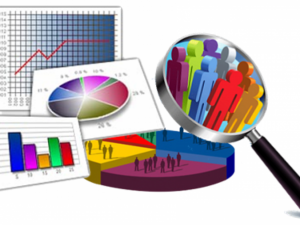Bulgaria’s economy grew by 0.6 per cent in the third quarter of the year, according to preliminary data announced by the National Statistical Institute (NSI) on December 7, falling short of the 0.9 per cent NSI flash estimate released last month.
Compared to the same period of 2020, Bulgaria’s economy grew by 4.6 per cent in the third quarter. In real terms, gross domestic product (GDP) in July-September was 36.13 billion leva, or 18.47 billion euro.
NSI made no reference to the impact of the Covid-19 pandemic, which prompted Bulgaria to declare a State of Emergency on March 13 2020, shutting down parts of its economy as it introduced social distancing and anti-epidemic measures. The restrictions led to the country’s economy shrinking by 10 per cent in Q2 2020.
The State of Emergency remained in force until May 13 2020, when it was followed by the declaration of an epidemic, which has been extended repeatedly and remains in effect.
NSI’s preliminary data showed domestic consumption rose by 1.8 per cent compared to the second quarter of 2021 and was 6.8 per cent higher year-on-year, while gross fixed capital formation was up by 6.2 per cent compared to Q2 2021 and one per cent higher on an annual basis.
Exports in the third quarter were down 2.2 per cent, while imports rose by 3.3 per cent, but still resulted in a trade surplus of 1.82 billion leva, or 5.1 per cent of GDP. Compared to the third quarter of last year, exports were up 9.8 per cent and imports were 12.7 per cent higher.
Bulgaria’s Cabinet has set a 2.5 per cent economic growth target this year in the Budget Act macro-economic framework, with NSI data showing GDP declined by 4.2 per cent in 2020. The European Commission’s autumn forecast projected that the Bulgarian economy would grow by 3.8 per cent this year.
